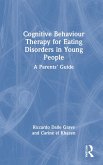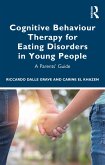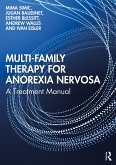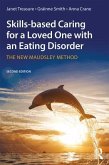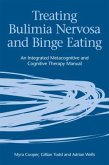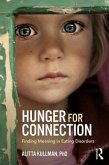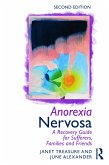A Young Person's Guide to Cognitive Behavioural Therapy for Eating Disorders is a state-of-the-art guide for young patients struggling with disordered eating based on enhanced cognitive behaviour therapy (CBT-E).
CBT-E is one of the most effective treatments for eating disorders, including anorexia nervosa, bulimia nervosa and binge-eating disorder, which has recently been adapted for adolescents. Written by two experienced clinicians and clinical researchers working daily with teenagers suffering from eating disorders, and their parents, this book offers an effective mix of theory and clinical expertise that will appeal to all readers. The volume starts with a presentation the most current facts on eating disorders. Part 2 then provides young with eating disorders a complete description-accompanied by clinical examples and helpful vignettes on how to implement the main CBT-E procedures.
While this book is specifically tailored for young people aged between 15 and 25 years with eating disorders treated with CBT-E, it will also be useful for all young persons affected by eating disorders, and clinicians using CBT-E with young patients.
CBT-E is one of the most effective treatments for eating disorders, including anorexia nervosa, bulimia nervosa and binge-eating disorder, which has recently been adapted for adolescents. Written by two experienced clinicians and clinical researchers working daily with teenagers suffering from eating disorders, and their parents, this book offers an effective mix of theory and clinical expertise that will appeal to all readers. The volume starts with a presentation the most current facts on eating disorders. Part 2 then provides young with eating disorders a complete description-accompanied by clinical examples and helpful vignettes on how to implement the main CBT-E procedures.
While this book is specifically tailored for young people aged between 15 and 25 years with eating disorders treated with CBT-E, it will also be useful for all young persons affected by eating disorders, and clinicians using CBT-E with young patients.
'This guide will be an invaluable resource for any young person receiving enhanced cognitive behaviour therapy (CBT-E) for eating disorders or considering this treatment. This guide intends to empower and equip a young person on their journey to recovery using a CBT-E approach. The book describes how eating problems develop and are maintained, and consequently how they can be successfully addressed. Taking part in CBT-E can be an effortful process, although the more effort a young person is able to put into therapy the more they are likely to benefit from it. This guide will help a young person to navigate this therapy and aid with challenges they might face along the way. It is also likely to be helpful for clinicians using CBT-E with young people, given its accessibility and deliberate efforts to translate any "jargon" into everyday terms.'
Rebecca Murphy, PhD, The Centre for Research on Eating Disorders at Oxford (CREDO), Department of Psychiatry, University of Oxford (UK)
'Most eating disorder books are geared toward adults or parents-this is one of the first to be uniquely tailored for young people themselves. Brimming with relatable real-life examples, QR codes that link to helpful worksheets, and user-friendly descriptions of cutting-edge research, A Young Person's Guide to Cognitive Behavior Therapy for Eating Disorders puts the patient in the driver's seat, encouraging them to play an active role in their own recovery. I can't wait to recommend this fantastic resource to all of my young patients receiving cognitive-behavioral therapy for their eating disorder.'
Jennifer J. Thomas, PhD, FAED, Co-Director, Eating Disorders Clinical and Research Program, Massachusetts General Hospital, Associate Professor of Psychology, Department of Psychiatry, Harvard Medical School, President, Academy for Eating Disorders
'This book for young people receiving CBT-E for an eating disorder is an incredibly valuable and engaging resource. It comes longside the young person and has the potential to "turbo charge" therapy by involving them as a fully informed and respected partner in the therapy.'
Tracey Wade, Matthew Flinders Distinguished Professor of Psychology, Flinders Institute for Mental Health and Wellbeing, Flinders University Services for Eating Disorder (Australia)
'Clinical experience in the complex field of eating disorders has a priceless value: "A Young Person's Guide to Cognitive Behavioral Therapy for Eating Disorders" makes available to young patients and their therapists a multi-year experience and all the knowledge of the authors about the use of this evidence-based therapy with the aim of empowering young people suffering from an eating disorder to fully benefit of this technique.'
Angela Favaro, Full Professor of Psychiatry - Department of Neuroscience, Padua University (Italy)
Rebecca Murphy, PhD, The Centre for Research on Eating Disorders at Oxford (CREDO), Department of Psychiatry, University of Oxford (UK)
'Most eating disorder books are geared toward adults or parents-this is one of the first to be uniquely tailored for young people themselves. Brimming with relatable real-life examples, QR codes that link to helpful worksheets, and user-friendly descriptions of cutting-edge research, A Young Person's Guide to Cognitive Behavior Therapy for Eating Disorders puts the patient in the driver's seat, encouraging them to play an active role in their own recovery. I can't wait to recommend this fantastic resource to all of my young patients receiving cognitive-behavioral therapy for their eating disorder.'
Jennifer J. Thomas, PhD, FAED, Co-Director, Eating Disorders Clinical and Research Program, Massachusetts General Hospital, Associate Professor of Psychology, Department of Psychiatry, Harvard Medical School, President, Academy for Eating Disorders
'This book for young people receiving CBT-E for an eating disorder is an incredibly valuable and engaging resource. It comes longside the young person and has the potential to "turbo charge" therapy by involving them as a fully informed and respected partner in the therapy.'
Tracey Wade, Matthew Flinders Distinguished Professor of Psychology, Flinders Institute for Mental Health and Wellbeing, Flinders University Services for Eating Disorder (Australia)
'Clinical experience in the complex field of eating disorders has a priceless value: "A Young Person's Guide to Cognitive Behavioral Therapy for Eating Disorders" makes available to young patients and their therapists a multi-year experience and all the knowledge of the authors about the use of this evidence-based therapy with the aim of empowering young people suffering from an eating disorder to fully benefit of this technique.'
Angela Favaro, Full Professor of Psychiatry - Department of Neuroscience, Padua University (Italy)


